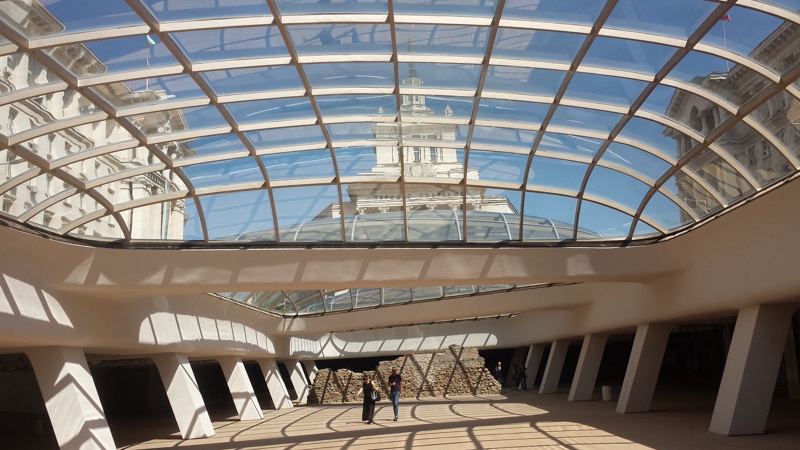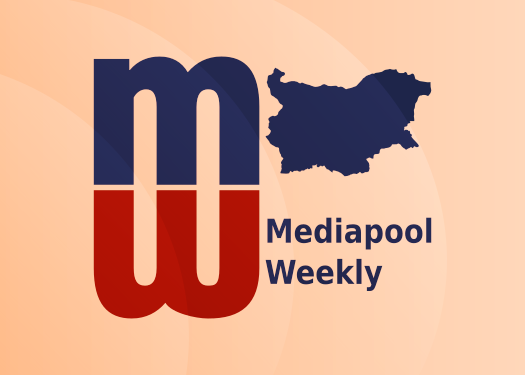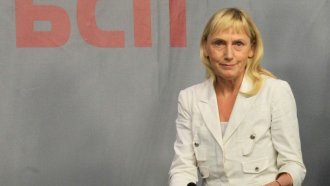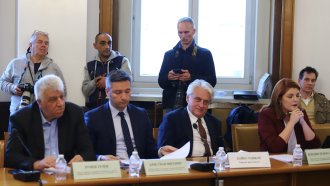Judicial system

2018 continued the steady course set back in 2017 of establishing various ‘special’ institutions within the judiciary. 2017 marked the beginning of the specialized courts, which – as is continually demonstrated – work within their own set of rules and are accountable to no one, except maybe to the Chief Prosecutor.
2018 continued this trend by adopting the Anticorruption Act, which transformed the Anticorruption Commission into a repressive institution with law enforcement capabilities, while is simultaneously not a law enforcement agency. This gives it a unique position of being able to use law enforcement tools without actually be accountable as such. Not that Bulgarian law enforcement institutions are exactly known for their accountability. But still.
The Anticorruption Commission is entirely unaccountable and its actions (mainly investigating the origin of assets and attaching them in cases it has ‘suspicions’ as to their legality) is fully independent and unaccountable. The commission even may attach funds for which the courts have ruled that they are legitimate. It is bothersome enough that the commission may attach funds of individuals with ongoing cases against them regarding the funds’ legitimate origins. The commission acts before the court rules, which arguably borders the presumption of innocence in itself. But the commission reserves this right even after the court rules the assets have legitimate origins, thanks to the most recent amendments just passed in Parliament (pending to be enacted). Which makes the commission, without a doubt, a stand-alone special institution with investigative and law enforcement abilities and a decision-making process, independent of any system of power within the state.
The government didn’t care much to pretend the commission is not its personal bully against individuals and groups the largest (and longest) ruling party GERB does not like. It first went out against representatives of municipal governments, who posed an inconvenience one way or another to GERB and its close circle, especially of construction and real estate development companies. The most notable example for this is the arrest of former mayor and deputy of the Sofia district of Mladost, Dessislava Ivancheva and Bilyana Petrova. The commission was at the center of the spectacular arrest, during which the two women were held for six hours handcuffed in the middle of a busy intersection in the city center, surrounded by tens of armed and mostly masked special forces agents. The two were charged with receiving a 70’000-euro bribe for issuing a construction permit in Mladost. The two have been in jail for eight months now. The court has ruled three times to release them under house arrest, twice the appeals court reverses the decision, and now a third appeal is pending, during which time the two are at home. The two women are treated horrifically, and are effectively being tortured and publicly humiliated.
Ivancheva won the last local elections in Mladost as an independent on a platform for ending the excessive construction projects in the district.
The commission also went against the head of the Supreme Court of Cassation, Lozan Panov, Panov is openly critical of the Chief Prosecutor, and thus the almost constant inquiries into him make sense. After all the Chief Prosecutor is the most powerful figure in Bulgaria, while evidently the special courts and commissions are merely his tools.
The Anticorruption Commission has been targeting one of Economedia’s publishers, Ivo Prokopiev, as well throughout the year. Economedia’s news outlets are known for being critical of the government and one of the prominent voices for judicial reform in Bulgaria. The commission attached Prokopiev’s assets from selling the Kaolin mines to another company. The deal has been pronounced legitimate twice by the Bulgarian courts.
2018 ended with amendments, which gave the Prosecutor’s Office the right to arrest underage individuals and strip them of the right to inform their parents during the first 24 hour. The bill caused public backlash to which the Deputy Justice Minister Evgeni Stoyanov, who holds a PhD in law, said in an interview:
“This child [who has been arrested] is not a child that is good, decent. This is a detained child, put under custody, a measure as you know is taken only in extraordinary circumstances.”
To paraphrase a famous expression, with justice like this, who needs penalties. Litirally, it seems, as various steps are made to allow state institutions to punish without proven guilt in court.
At least for the European Commission, all is well, according to its last Cooperation and Verification Mechanism report
Business, finance and economy

The most long-standing story throughout the year (and over the past several years) is the extreme growth of gambling practices in Bulgaria. Vassil Bozhkov’s National Lottery and Lottery Bulgaria for 2017 and the first half of 2018 is the largest advertiser both in TV and print media with investments of 23 million euro and 13 million euro respectively. Direct advertisement of gambling in Bulgaria is banned but thanks to a loophole, Bozhkov’s games bypass the legislator’s intents.
Nearly every shop in Bulgaria, including grocery stores, gas stations, newspaper stands etc. sells tickets for Bozhkov’s games. They are extremely accessible and the demand rises exponentially, especially among lower income households, which is even visible by the ads, which regularly feature people with previous financial difficulties, who have won a significant amount playing Bozhkov’s lotteries.
Former vice PM Valeri Simeonov introduced a bill to Parliament, which would have banned (effectively) the excessive advertising and also limit where the tickets could be sold only in especially defined places. At first both ruling GERB and the largest parliamentary opposition, the Bulgarian Socialist Party, gave verbal support on the initiative but that quickly evaporated at the very first reading in Parliament. The bill was sent for notification from the European Commission, which recently gave the bill a green light. It is now up to the chairwoman of the Parliamentary Budget Committee to move forward the bill, which she promised to do after New Year.
Meanwhile the insurance branch underwent some serious turbulence over the year. The so-called Green Card system closed the year with heavy problems. The main reason turned out to be that one of the largest insurance companies in Bulgaria, Lev Inc was accused of failing to pay for green car insurance claims abroad, claiming insurance fraud.
The Cyprus-cased insurance companies Olympic declared bankruptcy, leaving 200’000 car-owners without the compulsory car insurance. The Financial Supervision Commission had seemingly overlooked the bankruptcy, may be even caught them by surprise. The only one who took responsibility was FSC’s deputy director, Ralitsa Again, who resigns. The head of the commission, Karina Karaivanova, refused to make a public appearance and issued a written statement that she had not been informed about the problem.
Earlier this year the Trae Registry broke down and was offline for a full 17 days. The system crashed on August 10 and was restored on August 27. This is the longest time the Trade Registry was ever offline in 11 years. The registry is critical for all business dealings, transactions and procedures in Bulgaria. All primate companies must submit most deals and changes in the status of the entities and so on to the registry, otherwise, the deals, changes etc. could not be finalized. The registry also holds the documentation of non-profits as of this year as well.
The official explanation the authorities gave was disk failure of four of the Registry’s drives, affecting 25 TB of data, along with the backups as well.
The unprecedented crash did not result in any notable political crisis, except for the eventual resignation of the head of the Registry Agency, but only after she’d insisted, she would not resign for about ten days into the crisis.
Lastly, while this government is still debating over if and when to renew the NPP Belene project, even though the European Commission explicitly said that a renewal of NPP Belene would mean a new assessment (i.e. the EC will consider the renewal of Belene a new project), and is continuing to spend time, money and effort on this, regardless of its utter pointlessness, the European Commission has fined the state-owned Bulgarian Energy Holding 77 million euro. The fine is because BEH and its daughter companies Bulgargaz (which manages gas supply) and Bulgartransgaz (which owns Bulgaria’s gas infrastructure) have blocked access to Bulgaria’s gas infrastructure for private rivals in the period 2010-2015.
The Bulgarian government response was impeccably unbelievable: both Energy Minister Temenuzhka Petkova and PM Boyko Borissov claimed on national television that the EC had wanted for Bulgaria to privatise the two companies and that this government would not allow this to happen and that that was a question of national security. EC Competition Commissionaire Margarethe Vestager explained that this is not true though: the EC had only wanted for Bulgartransgaz and Bulgargaz to be taken out of BEH in order to ensure (better) competition.
Bulgaria has three months to pay the fine or appeal (which this government will probably do) in which case BEH will have to make only a provisional payment.
Politics

Three major stories overlooked the year. The investigative news site Bivol reported earlier this year on a massive EU funds fraud scheme to drain EU funds. At the heart of the scheme is the extremely well-connected GP Group. The company holds great dominance in wining government contracts for construction, mostly in transport construction but also – urban reconstruction: most notably, GP Group is in charge of the now infamous reconstruction of one of the iconic streets in the historical center of Sofia, Graf Ignatiev; a reconstruction project, which is at the focal point of the public’s attention with its low-quality execution and not a single deadline met to date.
Initially the story about GP Group and the EU funds fraud scheme made international headlines as two of the reporters working on a story– Dimitar Stoyanov of Bivol and Attila Biro of RISE Project, Romania – were detained by the police while investigating the burning of a large number of documents in a field near Radomir. Bivol claims that the documents are connected to the scheme. The two reporters informed the police about the burning but ended up under custody throughout most of the night. According to Bivol’s reporting the scheme is extremely elaborate and includes consultant firms, high ranking government officials, project evaluators etc.
The Bulgarian institutions are investigating, the Sofia City Prosecutor’s Office has attached 14 million euro of GP Group’s funds, and PM Boyko Borissov ordered the removal of some officials and freezing GP Group’s EU funding, named in the reporting. Bivol started a petition for the investigation to be carried out by the European Commission, however, and not by the Bulgarian authorities, which in their view will only stage activities while taking care to not do anything substantial.
Another noteworthy political story from this year is the protests of parents with children with disabilities, which lasted six months. They demanded concrete amendments to the three acts, which regulate persons with disabilities and they achieved them at the end. Apart from the amendments, the parents were the prime reason for the resignation of former vice PM Valeri Simeonov for calling them “a group pf loudmouthed women with supposedly sick children”. If the phrasing wasn’t bad enough, not only did Simeonov refuse to resign for a long time, he barely apologized. Althewhile, PM Boyko Borissov kept saying that he has no way of asking Simeonov to resign, and if he did, the coalition would collapse, which in of itself was key: the PM admitted he is powerless in this coalition, as he and his party’s only goal is to remain in power.
Lastly, just a few weeks ago Mark Ghirardelli, the five-time ski world cup holder, announced himself the owner of Yulen: the company, which – as everybody knows, in the words of PM Boyko Borissov – is First Investment Bank majority shareholder Tseko Minev’s – but nobody has ever dared to name officially. Yulen is the concessionaire of Bansko’s ski zone. Bansko is at the heart of almost all protests of environment organizations and activists for numerous reasons, not least of which is the fact that Yulen is in breach of its contract and is actially operation beyond the territory that the contract allows. After years of rejecting these claims, and the relevant authorities putting off an inquiry into this, officials finally declared that indeed Yulen has gone far beyond the agreed-upon teritorries, almost doubling the size of the ski zone.
For some reason, instead of penalizing Yulen in some administrative way, or even prosecuting the violations, the government decide to task Minister of Environment Neno Dimov with negotiating a new contract with Yulen. The new contract will include the effectively seized territories ‘but’ will have much greater concession fees, the minister assures us. Just as this story was developing Mark Ghirardelli took the public stage and announced he is the real owner of Yulen. An unlikely stunt, and hardly taken seriously by anyone but a stunt nonetheless.
Ключови думи
За честна и независима журналистика
Ще се радваме, ако ни подкрепите, за да може и занапред да разчитате на независима, професионална и честна информационно - аналитична медия.
 0 коментара
0 коментара
Екипът на Mediapool Ви уведомява, че администраторите на форума ще премахват всички мнения, съдържащи нецензурни квалификации, обиди на расова, етническа или верска основа.
Редакцията не носи отговорност за мненията, качени в Mediapool.bg от потребителите.
Коментирането под статии изисква потребителят да спазва правилата за участие във форумите на Mediapool.bg
Прочетете нашите правила за участие във форумите.
За да коментирате, трябва да влезете в профила си. Ако нямате профил, можете да се регистрирате.




